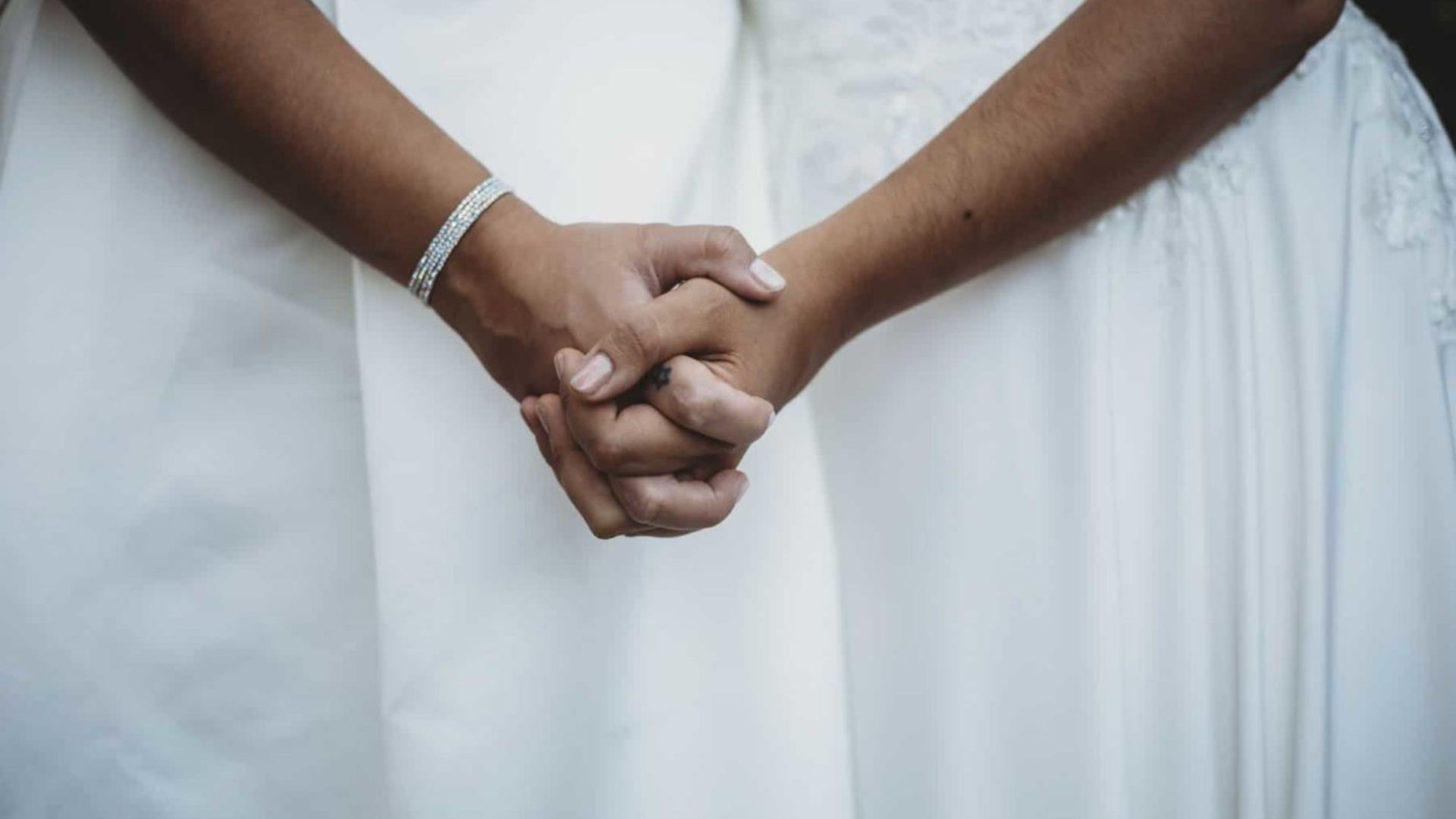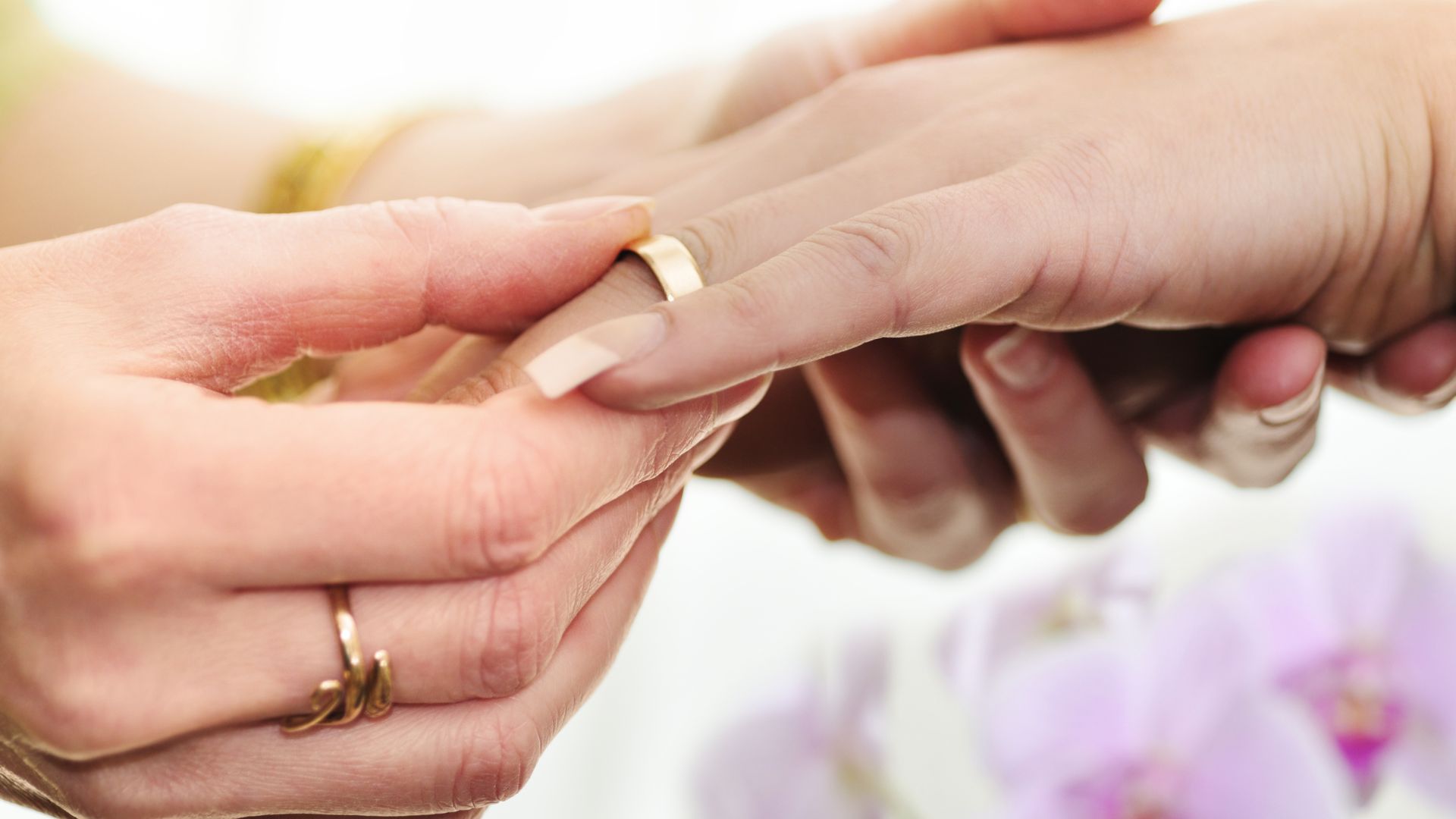A lesbian couple had wanted to hold their wedding in June – Pride Month, dedicated to celebrating LGBTQ+ communities all around the world. This is especially exceptional since this year, it is 50 years old.
Unfortunately, Parkroyal Collection Pickering, the hotel where the couple planned to hold their wedding, turned them away.
A screenshot of an email from the hotel to the couple was posted by Proutapp, a support app for the LGBTQ community on 20 June, resulting in a slew of netizens expressing their distaste towards the establishment located just opposite Hong Lim Park. Its location made the hotel an ideal accommodation choice for Pink Dot goers.
The hotel has since apologised, saying it is “open to hosting all events from the LGBTQ community” and that its staff had made a “wrongful assumption of the law” and rejected the couple’s request without consulting with higher management.
Speaking to TODAY, its General Manager Phil Smith said, “When we were informed by our teams of this email, we immediately investigated the matter as it was not in keeping with the hotel’s position, which has been open to hosting all events from the LGBTQ community.”
The couple had accepted the apology but had decided not to hold the event at the hotel. In an Instagram post on 21 June from the same @proutapp account, a message that appears to be from the couple read, “We hope that other hotels will be inspired by the Parkroyal Pickering and reconsider their own policies and communications towards allowing same-sex couples to hold their celebrations there.”
Although recognition of same-sex unions is largely a Western phenomenon, several Asian nations have taken the bold steps to make similar pronouncements, or at least make the legislation less harsh with regards to the needs of the LGBTQ+ community.
Despite their reputations for being homogenous and conservative societies, Japan and Taiwan have both supported and recognised same-sex partnerships, and even given such couples similar or identical rights as different-sex couples.
No same-sex marriages

Meanwhile, same-sex marriages continue to be illegal and not recognised in Singapore. Same-sex partners also do not have the same legal rights as spouses in heterosexual marriages.
So why is Singapore reluctant to follow Japan’s or Taiwan’s lead?
TheHomeGround Asia tried reaching out to the Ministry of Social and Family Development (MSF) about this situation but received no reply by publication time.
When former teacher and tutor Otto Fong and his partner Han came out about their sexualities to their family members, acceptance was furthest from their minds.
“Our initial challenge was parental acceptance. My parents never took him seriously as my partner, and for 10 years, he dutifully played the good son-in-law role by doing errands and driving them around. I had to remind my parents that he made better grades than my siblings’ spouses before they changed their behaviour and started inviting him to reunion dinners,” Mr Fong says.
Acceptance vs Rejection
That was a significant difference from the acceptance that food critic Yeoh Wee Teck and his partner Terence faced from their families and loved ones.
Mr Yeoh says, “Mine were quite accepting, quite unexpected as they are elderly and traditional. My mother’s refrain then was to make sure that I have someone to take care of me when I am old. His (Terence’s) family is very accepting too. His mother has deep bonds with her sister, and they were accepting so it made the coming out much easier.”
Product specialist Adele, who declined to give her real name, also faced little difficulty opening to her parents about being involved in a same-sex relationship.
She says, “I came out when I was in Primary 6. My family and friends suspected I may be lesbian from the way I dressed and the fact that I was always bringing female partners home, so I never had to really ‘come out’.”
Mr Fong says, “When the Singapore society showed little sign of changing the attitude towards LGBTQs, I applied for and obtained an Australian PR. I proceeded to apply for a de facto partner PR for Han, but our application was more laborious.”
“A straight couple could produce marriage certificates and they would be accepted immediately, but Han and I had to prepare for a few years of postcards from friends, photographs of holidays and testimonies from close friends. We also had to go through an interview at the Australian High Commission, which was very personal, so it was uncomfortable for a then-closeted Asian gay couple to say the least. But when we got accepted, that was very nice because it was the first official recognition of our partnership! Legally, Han and I also had to continuously update our Wills so that we can protect each other financially should either of us meet with an unexpected sudden demise,’’ he adds.
Adele’s partner has two children from her earlier marriage to a man. But the lack of recognition of same-sex marriages means those children are not covered under the couple’s medical insurance, nor can they avail themselves of medical subsidies.
‘’We also do not have distinct rights over housing and other matters should we decide to break up later in our lives,’’ she adds.

Lawyer Gloria James-Civetta acknowledges that Singapore lags behind Asian countries in recognising same-sex marriages and partnerships.
“Even India is ahead of Singapore in terms of legalising same-sex partnerships. The issues still outstanding at home comprises whether same-sex marriages should be legalised, whether civil same-sex partnerships should be accorded similar rights as civil partnerships, according de-facto marriages (cohabitation) the same privileges as legal ones, surrogacy, adoption rights for same-sex couples, and rights for same-sex couples to buy HDB properties,” she says.
Ms James-Civetta adds that Singapore’s conservative nature meant that the country is not ready just yet to legalise same-sex unions.
“Under the Women’s Charter, the definition of marriage is between a man and a woman in accordance with the registry of marriages in Singapore. Same-sex couples married abroad are unfortunately unable to file for a divorce in Singapore,” she says.
In accordance with the Mental Capacity Act, Ms James-Civetta says that couples would need to appoint their partners and authorise them to make decisions on their behalf, in the event that one partner loses the ability to make his or her own decisions, under the Lasting Power of Attorney (LPA).
She adds, ‘’Technically when it comes to medical decision-making, the difference for same-sex unmarried and married couples is immaterial, because in order to make medical decisions on behalf of their partners, an LPA is required either way. However, married couples are more likely to have LPAs between them than unmarried couples, because of the nature of their formal relationship that is legally recognised.’’
Housing woes
As same-sex couples cannot marry in Singapore, Ms James-Civetta says an HDB flat they live in cannot be counted as a matrimonial asset to be divided upon separation.
“Furthermore, same-sex couples cannot own their own public housing. Their options thus are renting; opting for the Single Singapore Citizen Scheme (SSCS) or Joint Singles Scheme (JSS) after 35 years of age; or purchase private housing. Upon the death of one partner, the unmarried couple would have to rely on their wills in dividing the assets, if any exists in the first place. For a married couple, even if there is no will, the surviving party is recognised under intestacy,’’ she adds.
Ms James-Civetta highlights that same-sex couples may also face issues if their children were conceived under surrogacy or adopted by the parties.
“Since surrogacy is illegal in Singapore, the landmark case of Re UKM [2018] SGFC 20 shares the Court’s view that Singapore’s public policy encourages parenthood within marriage as it is in the interests of the child to grow up in a family with a father and a mother,” she says.
The landmark case that Ms James-Civetta is referring to is when the High Court, in 2018, approved the appeal by a gay Singaporean to adopt his biological son, whom he fathered in the United States through a surrogate.

The pathologist father had brought the Pennsylvania-born boy, then five, to Singapore, but his bid to adopt him was rejected by a district judge in 2017.
In the judgment grounds released, the three-judge appeal court made clear that its move to reverse the decision was based “on the particular facts of the case and should not be taken as an endorsement of what the appellant and his partner set out to do”.
“For adoption, only one parent can adopt a child. Thus, to accord protection for the parent whose name is not in the child’s birth certificate or the adoption order, there has to be a separate agreement executed between parties. Unfortunately, such same-sex parents are unable to apply to be joint guardians of the child under the Guardianship of Infants Act,” Ms James-Civetta adds.
Slow but steady progress
Despite her frustration at the legal limitations, Adele is grateful for the small steps of progress made for same-sex couples and the LGBTQ community in Singapore so far.
“In Singapore, singles can still get IVF treatment regardless of sexual orientation. This is not possible in Taiwan and Japan, even though both countries recognise same-sex unions,’’ she says.
Mr Fong acknowledges that the pace of change for recognition of same-sex unions in Singapore has been disappointing and at times, frustrating.
“Changing the views of ourselves as global citizens is useful and strategic. Because we are disenfranchised in Singapore, we are forced to adapt and that will serve us well when technology causes the next societal or global order upheaval. Nobody stays disenfranchised forever. And nobody stays on top of others forever either,” he says.
Mr Yeoh says that lacking legal status of his and Terence’s union hurts, especially as both men are contributing members of society.
“We pay taxes like everyone else, and we do our part for the country. It is good that Terence’s family are on board so that my wishes are carried out. We live and let live. But we are reminded of our different status whenever Section 377A is brought up,” he says.
Another LGBTQ individual Charissa, who wants to be known only by her English name, hopes that LGBTQ advocates in Singapore will be able to navigate Singapore’s unique situation, be inspired and draw on existing resources, instead of being caught up by the progress of other Asian countries.
“While it can be tiring and discouraging at times, I want to focus on the work that can be done, and what I can contribute,” she says.
Ms James-Civetta acknowledges that legalising same-sex marriages would be ideal for Singapore’s reputation as an advanced, first-world nation, and alleviate the stigmatisation and ostracism faced by these couples, but she does not think the time is right for such changes yet.
“Change can only take place if Singapore embraces the outstanding issues, which I raised earlier. At this stage, I do not think Singapore is ready to seriously have this conversation,” she adds.
RELATED: Being queer and fighting for LGBTQ+ rights in socially conservative Singapore
Join the conversations on TheHomeGround Asia’s Facebook and Instagram, and get the latest updates via Telegram.




























